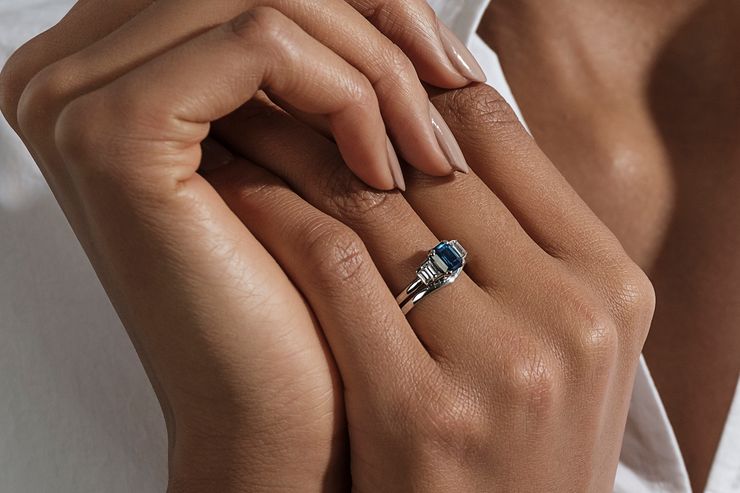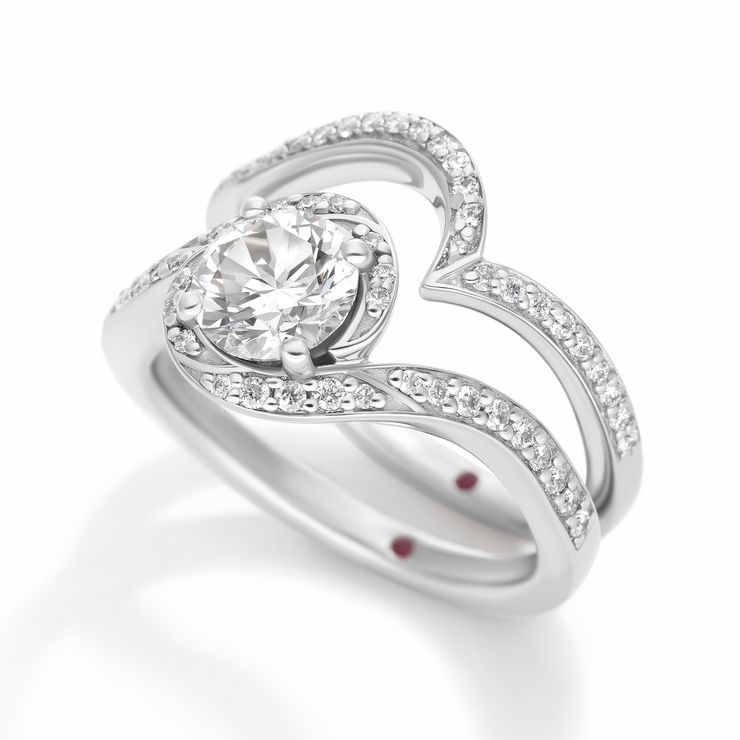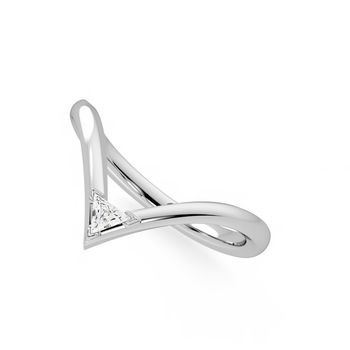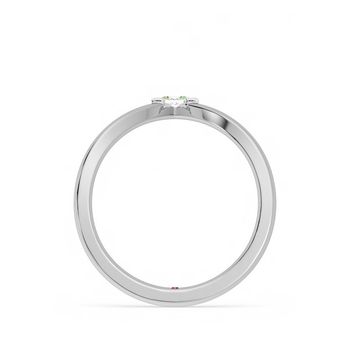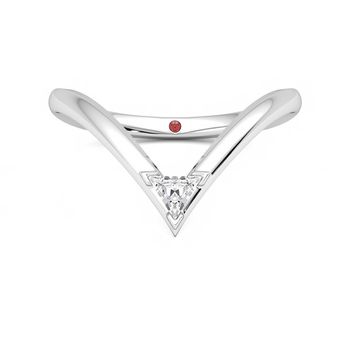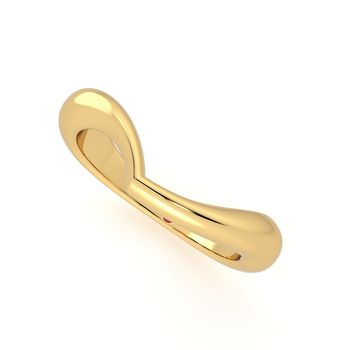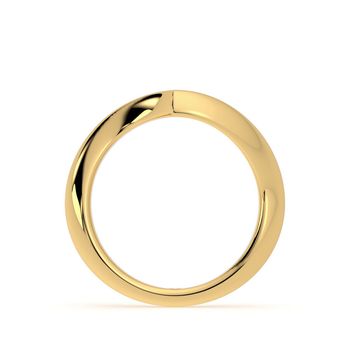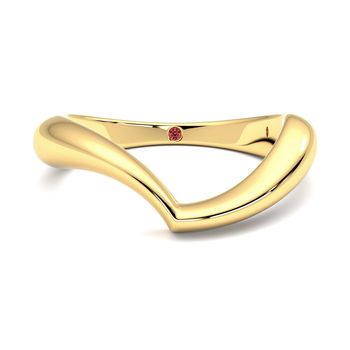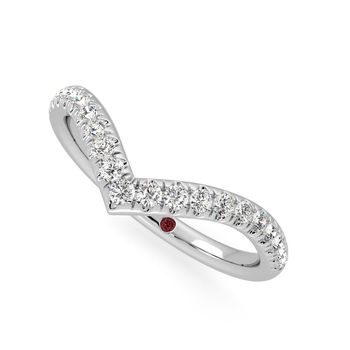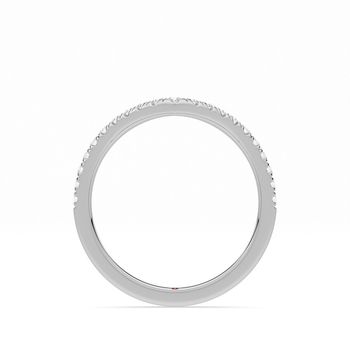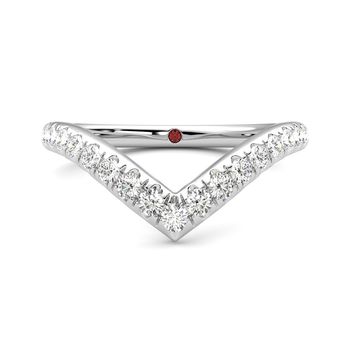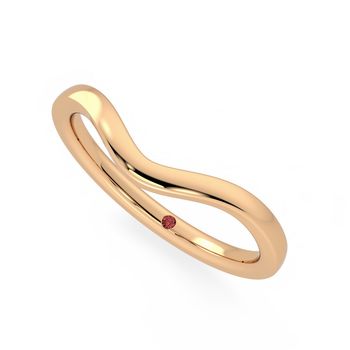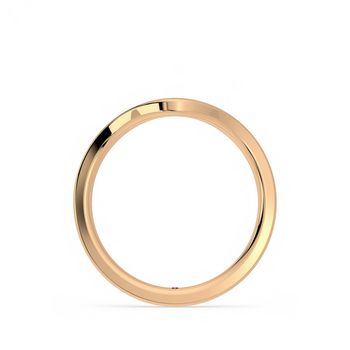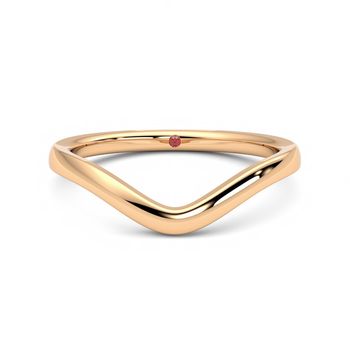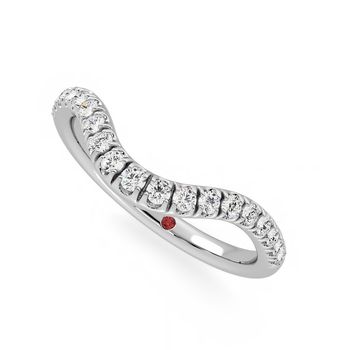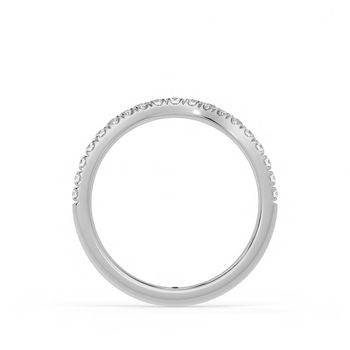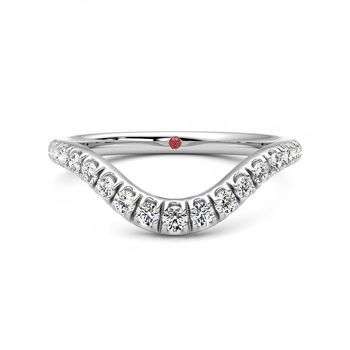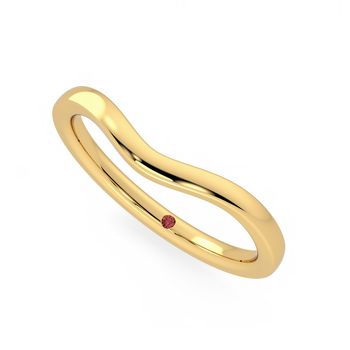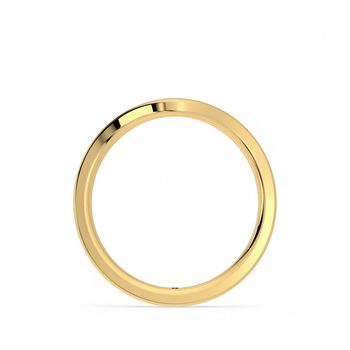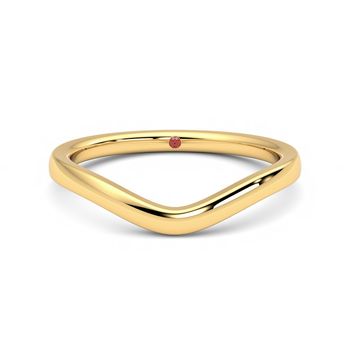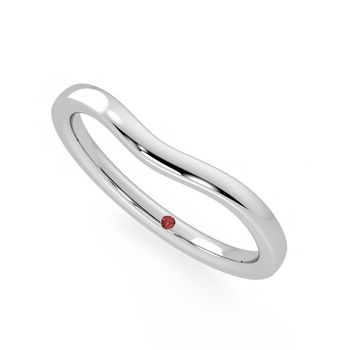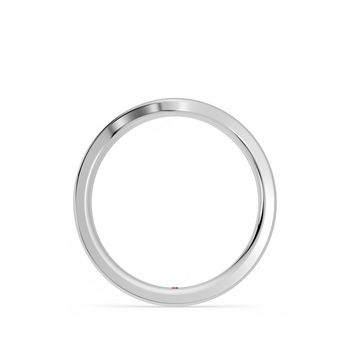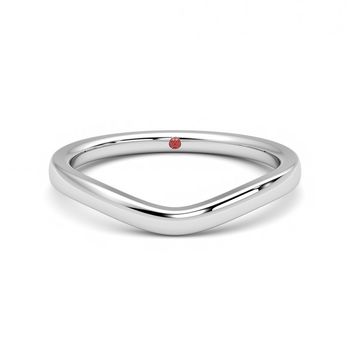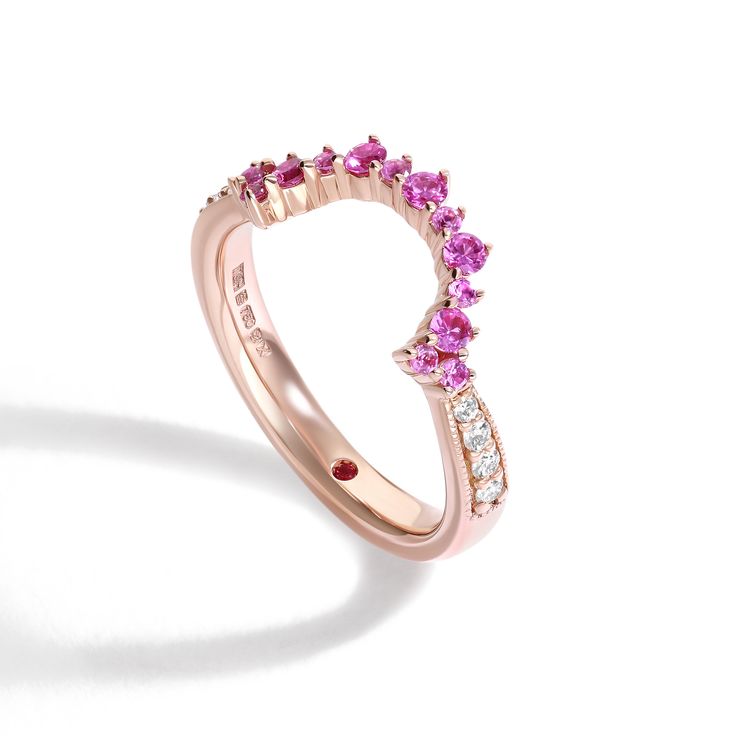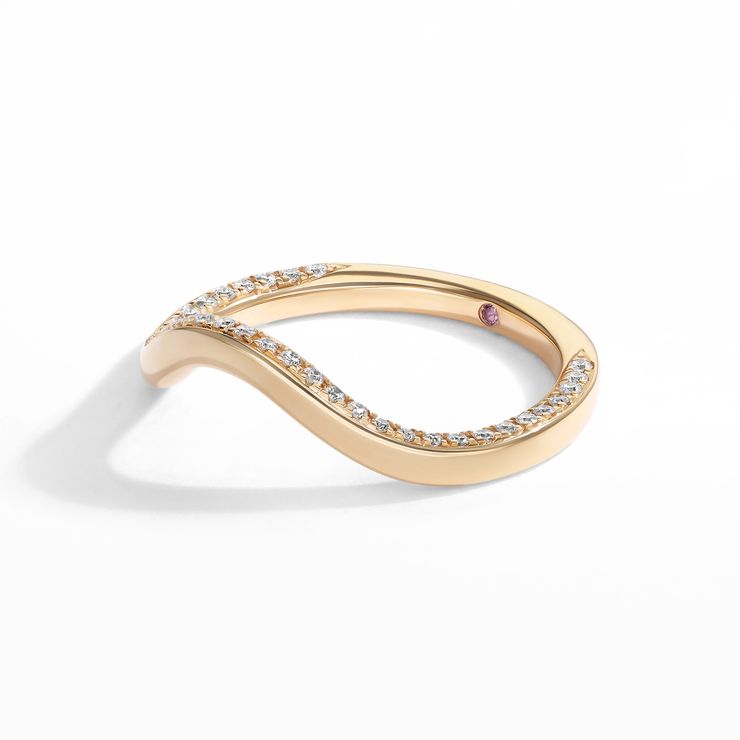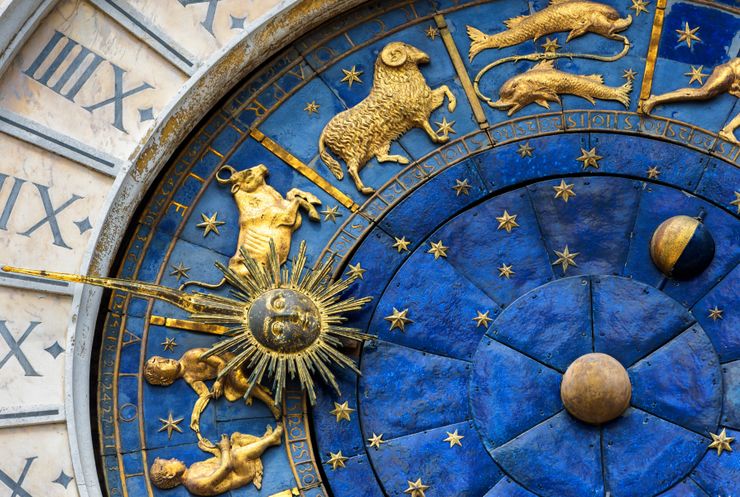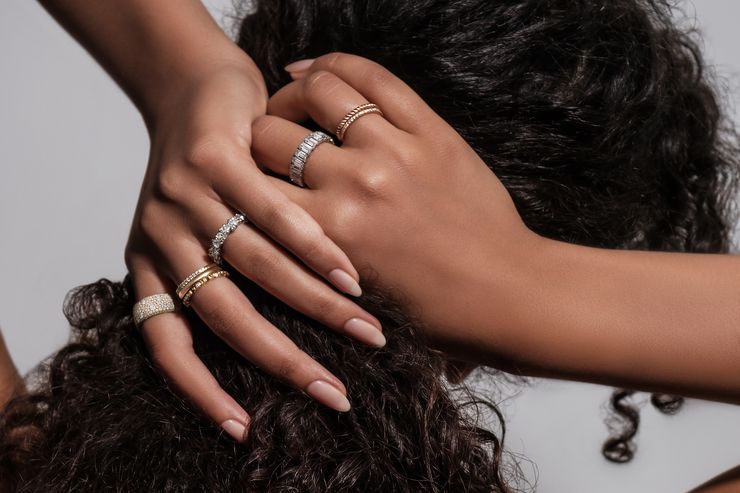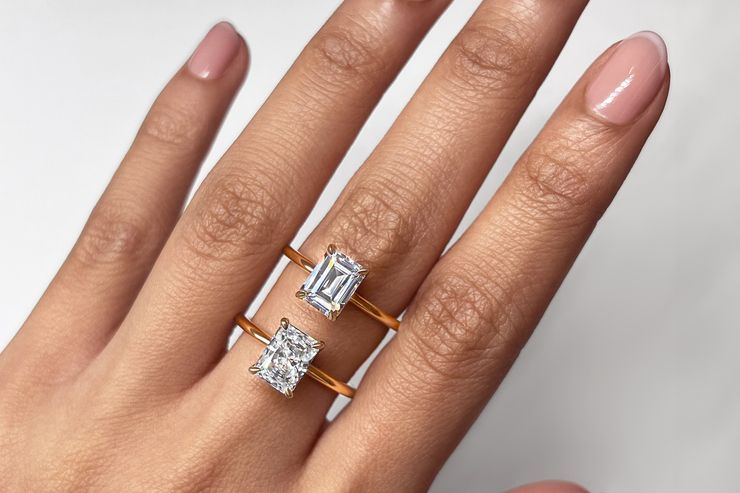It’s been a long time coming
The concept of this style of wedding band dates all the way back to ancient Egypt where couples exchanged rings made of braided reeds and hemp. These early bands were used to symbolise commitment for eternity. Picture a couple in love, strolling hand in hand along the Nile, celebrating their engagement of sorts with these meaningful bands. Over time, the materials evolved, with ancient Romans and Greeks opting for more durable metals like iron and gold – it’s been a tradition a long time in the making.
But the curved wedding band, as we know it today, emerged much later. The idea of creating a band that curves to fit snugly alongside an engagement ring didn’t become popular until the 20th century. Jewellery design was evolving, techniques became even more advanced and driven by the desire to accommodate the many shapes and sizes of engagement rings, entered the curved band.

